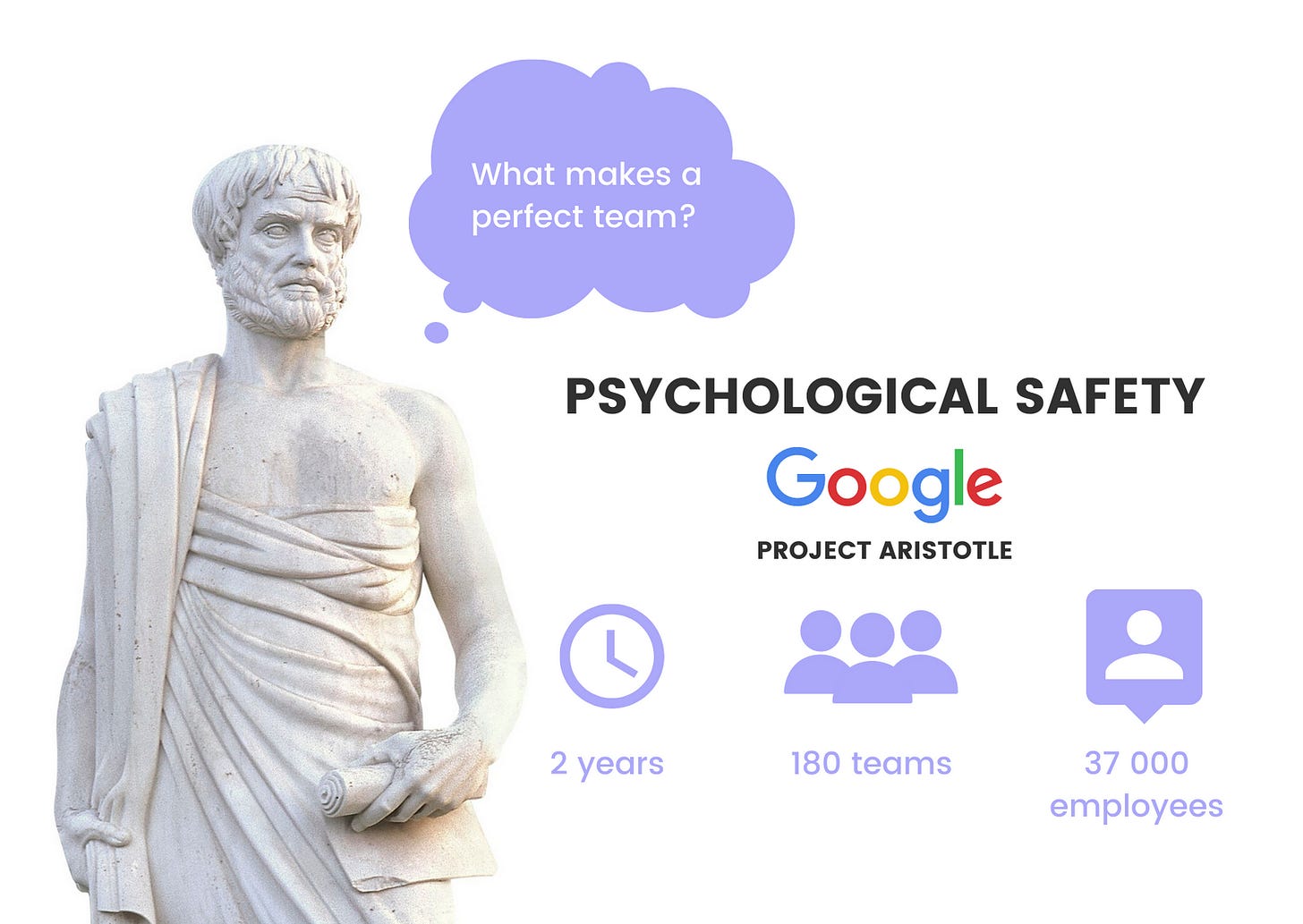Introduction
Google's Project Aristotle, a groundbreaking study on team dynamics, unveiled the secrets behind what makes a team truly successful. By examining the patterns and behaviors of 180 teams during 2 years, Google identified key factors that contribute to effective collaboration and innovation. In this blog post, we'll explore three essential lessons from Project Aristotle that can help you create a more cohesive and productive team.
1: Psychological Safety is Crucial
One of the most significant findings from Project Aristotle is the importance of psychological safety in the workplace. Psychological safety is the shared belief among team members that they can take risks, admit mistakes, and speak their minds without fear of negative consequences or judgment. In teams where psychological safety is present, members are more likely to engage in open communication, share ideas, and collaborate effectively.
To foster psychological safety within your team:
Encourage open communication and active listening
Create an environment where mistakes are seen as opportunities to learn and improve
Avoid blaming individuals for failures and instead focus on finding solutions as a team
2: Dependability Matters
High-performing teams are dependable. Team members consistently deliver on their commitments and can rely on one another to complete tasks on time and with quality. Dependability builds trust among team members, which is crucial for smooth collaboration and achieving desired outcomes.
To enhance dependability within your team:
Set clear expectations for performance and deadlines
Hold each team member accountable for their commitments
Celebrate successes and acknowledge individual contributions
3: Teams need Structure and Clarity
Project Aristotle also revealed the significance of structure and clarity in team success. Teams with clear goals, well-defined roles, and comprehensive plans function more efficiently and are more likely to achieve their objectives.
To provide structure and clarity for your team:
Establish and communicate specific goals and expectations for each project
Ensure that every team member understands their role and responsibilities
Regularly review and adjust plans as needed to maintain alignment and focus
Conclusion
By applying these lessons from Google's Project Aristotle, you can create an environment that promotes collaboration, innovation, and success within your team. Remember, the strength of a team lies in its ability to work together and leverage the unique skills and talents of each member. For more information and a deeper dive into the findings of Project Aristotle, visit Rework Project Aristotle




